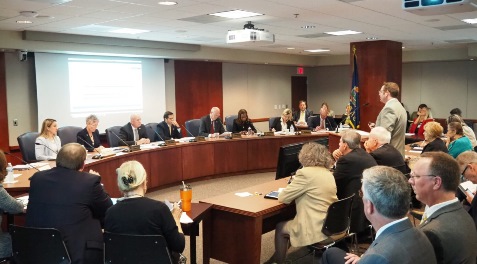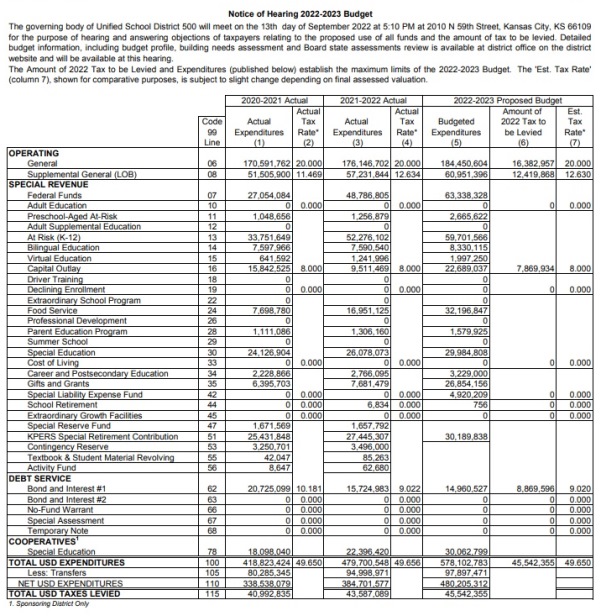Objective is to welcome more lower-income students into higher education

by Tim Carpenter, Kansas Reflector
Topeka — Kansas Board of Education member Betty Arnold believes a program offering lower-income students nine credit hours of college courses while in high school can propel more toward two- or four-year degrees — on one condition.
Arnold, who represents Wichita, Derby, Mulvane and Haysville, said the $11 million initiative under development by the Kansas Board of Regents could make a real difference if participating high school juniors and seniors understood the career opportunities emerging from investments in higher education. Lack of insight about the future, she said, frequently drained students of motivation to take that next step in education.
“Many of the students we talk of reaching have no idea of, ‘OK, I get a degree. What do I do after that?’ A lot can be accomplished if there was a way to educate students to the possibilities,” she said.
The Kansas Board of Regents briefed the state Board of Education on the proposed Kansas First – Diploma Plus plan to offer grants paying community college, technical college or university tuition and fees for an estimated 10,000 under-resourced high school students who qualify for free or reduced lunch programs in high school.
High school students would be enrolled in six credit hours of basic education courses such as algebra, history, composition, public speaking or sociology. The other three credit hours would be in career-oriented subjects such as biology, business, criminal justice, education or social work.
Blake Flanders, president of the state Board of Regents, said the 2023 Kansas Legislature could be asked to finance $11 million of tuition and fees for these students, in addition to $1.9 million for placing counselors in high schools to work with students on preparation for college. The standard rate paid to colleges and universities by the state under the draft proposal would be $113 per credit hour.
“I think this is the year we really need to break through,” Flanders said. “We know it’s not necessarily a baccalaureate for all. I think that’s something we need to just get out there. But it is post-secondary.”
Randy Watson, commissioner of the Kansas State Department of Education, said the model could be the successful state-financed program steering 32,000 high school students to technical education instruction through dual enrollment in high school and college. That program created during the administration of Gov. Sam Brownback has exceeded expectations in terms of student interest.
“How do we get that done? How do we come together?” Watson said.
The Board of Regents, the state Board of Education and higher education institutions taking part in delivery of courses to high school students could form an influential lobbying coalition during the legislative session starting in January.
Cindy Lane, a member of the state Board of Regents and a former superintendent of public schools in Kansas City, Kansas, said exposure of high school students to a college environment would help them develop a personal vision of higher education.
“From my perspective, it’s all about an opportunity gap,” Lane said. “We hear a lot about equity gaps. It’s not about kids’ capacity to do the work. It is about not having access to the opportunities of connecting their dreams to that post-secondary pathway. The big idea here is that we’re going to cultivate talent.”
High school students who find success in the proposed dual enrollment initiative would be more likely to see college as a logical option, said Carter Fine, president of Hutchinson Community College.
It would also shorten a student’s time to completion of associate or bachelor’s degrees, he said.
Fine said the state subsidy for tuition and fees would address a major barrier to college enrollment. The current proposal would include enough funding for 40% of 26,000 Kansas juniors and seniors categorized as economically under-resourced.
People from middle-class families struggled with college costs, he said, but individuals from low-income families found it “practically impossible” to afford a higher education.
The state Board of Regents has oversight of six public universities as well as community and technical colleges in Kansas. The state Board of Education has jurisdiction over K-12 districts statewide.
Kansas Reflector stories, www.kansasreflector.com, may be republished online or in print under Creative Commons license CC BY-NC-ND 4.0.
See more at https://kansasreflector.com/2022/09/16/kansas-pitches-plan-offering-9-hours-of-college-courses-to-under-resourced-high-school-students/

